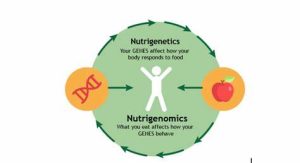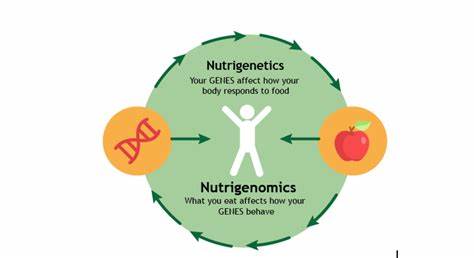While the concept of personalized nutrition is appealing, the Blood Type Diet, which claims to link blood type to specific dietary recommendations, has faced criticism for its lack of scientific support. However, there are alternative approaches to personalized nutrition that are more evidence-based and rooted in scientific understanding. In this discussion, we will explore alternative
While the concept of personalized nutrition is appealing, the Blood Type Diet, which claims to link blood type to specific dietary recommendations, has faced criticism for its lack of scientific support. However, there are alternative approaches to personalized nutrition that are more evidence-based and rooted in scientific understanding. In this discussion, we will explore alternative methods for tailoring eating plans to individual needs and health goals, going beyond the Blood Type Diet.
Evidence-Based Personalized Nutrition
Personalized nutrition is based on the idea that individual differences in genetics, metabolism, and lifestyle should inform dietary recommendations. Rather than relying on a single factor like blood type, evidence-based approaches consider a range of factors for a more comprehensive understanding of an individual’s nutritional needs. Here are some alternative methods for personalized nutrition:
1. Nutrigenomics
Nutrigenomics is a field of study that investigates how an individual’s genes influence their response to nutrients and foods. By analyzing a person’s genetic makeup, it is possible to provide personalized dietary recommendations. This approach considers factors such as genetic predispositions to food intolerances, nutrient metabolism, and disease risks.

https://blog.ginihealth.com/content/images/2019/08/Nutrigenomics.png
2. Metabolic Testing
Metabolic testing involves assessing an individual’s metabolic rate, nutrient utilization, and energy expenditure. This information can help tailor dietary recommendations to meet specific goals, such as weight management or athletic performance.
3. Food Allergy and Sensitivity Testing
Identifying food allergies or sensitivities through testing can help individuals customize their diets to avoid problematic foods. This can improve digestive health and overall well-being.
4. Dietary Tracking and Analysis
Tracking dietary intake and analyzing its impact on an individual’s health can provide valuable insights. This can be done through food diaries, apps, or working with a registered dietitian. The data collected can guide personalized dietary recommendations.
5. Medical Conditions and Health Goals
A person’s health conditions and goals play a critical role in determining their nutritional needs. Individuals with conditions like diabetes, heart disease, or celiac disease require dietary plans that are specific to managing their health effectively. Similarly, athletes and people seeking weight management will have unique dietary requirements.
6. Lifestyle and Cultural Preferences
A person’s lifestyle and cultural preferences should not be overlooked. Customizing dietary recommendations to align with an individual’s daily routine, work schedule, and cultural food practices can enhance adherence and overall success.
The Role of Registered Dietitians
Registered dietitians are healthcare professionals with expertise in nutrition and dietary counseling. They play a crucial role in tailoring eating plans to an individual’s unique needs and health goals. By considering factors such as genetics, metabolism, health conditions, and personal preferences, registered dietitians can provide evidence-based and personalized dietary guidance.

https://i.pinimg.com/originals/9e/02/b2/9e02b26d2c50dd0d17f73c3a56b9a107.jpg
Conclusion
While the Blood Type Diet and similar approaches have gained attention, they often lack scientific support. Alternative methods for personalized nutrition, such as nutrigenomics, metabolic testing, and the guidance of registered dietitians, provide more evidence-based and comprehensive approaches to tailoring eating plans. These methods consider a range of factors that influence an individual’s nutritional needs, enabling the development of dietary recommendations that are more likely to support overall health and well-being. Consulting with healthcare professionals or registered dietitians can provide the personalized guidance needed to create effective and evidence-based eating plans that align with an individual’s specific health goals and requirements.

















Leave a Comment
Your email address will not be published. Required fields are marked with *